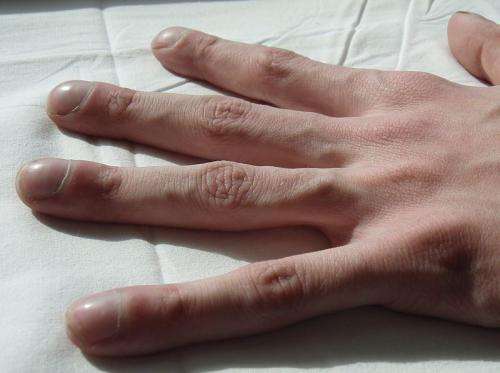Could a urine test help assess aspects of cystic fibrosis?

New research provides insights on the effects of cystic fibrosis in the kidneys. The findings, which appear in an upcoming issue of JASN, point to the potential for a urine test related to the disease.
The first hormone—called secretin—was discovered in 1902. Secretin stimulates the secretion of bicarbonate in the pancreas to neutralize acids. This requires a membrane protein and chloride channel called the cystic fibrosis transmembrane conductance regulator (CFTR), which is defective in patients suffering from cystic fibrosis, a condition that causes thick mucus to clog the lungs and obstruct the pancreas. In patients with this disease, there is no increase in urinary excretion of bicarbonate following treatment with secretin.
A team led by Jens Leipziger, MD, Ph.D. (Aarhus University) and Karl Kunzelmann, MD, Ph.D. (University of Regensburg) studied several mouse models, patients with cystic fibrosis, and different types of cells to define the mechanisms involved in the urinary excretion of bicarbonate, and how these mechanisms are affected by cystic fibrosis. They also found that a urine test of bicarbonate may help to assess CFTR function in patients, which may be useful for assessing the potential of new medications.
"A simple urine test may become a useful tool to measure how much CFTR function is defective in each patient and also to see if novel treatment strategies have an effect," said Dr. Leipziger.
More information: The Cystic Fibrosis Urine Test, Journal of American Society of Nephrology (2020). DOI: 10.1681/ASN.2020010053


















